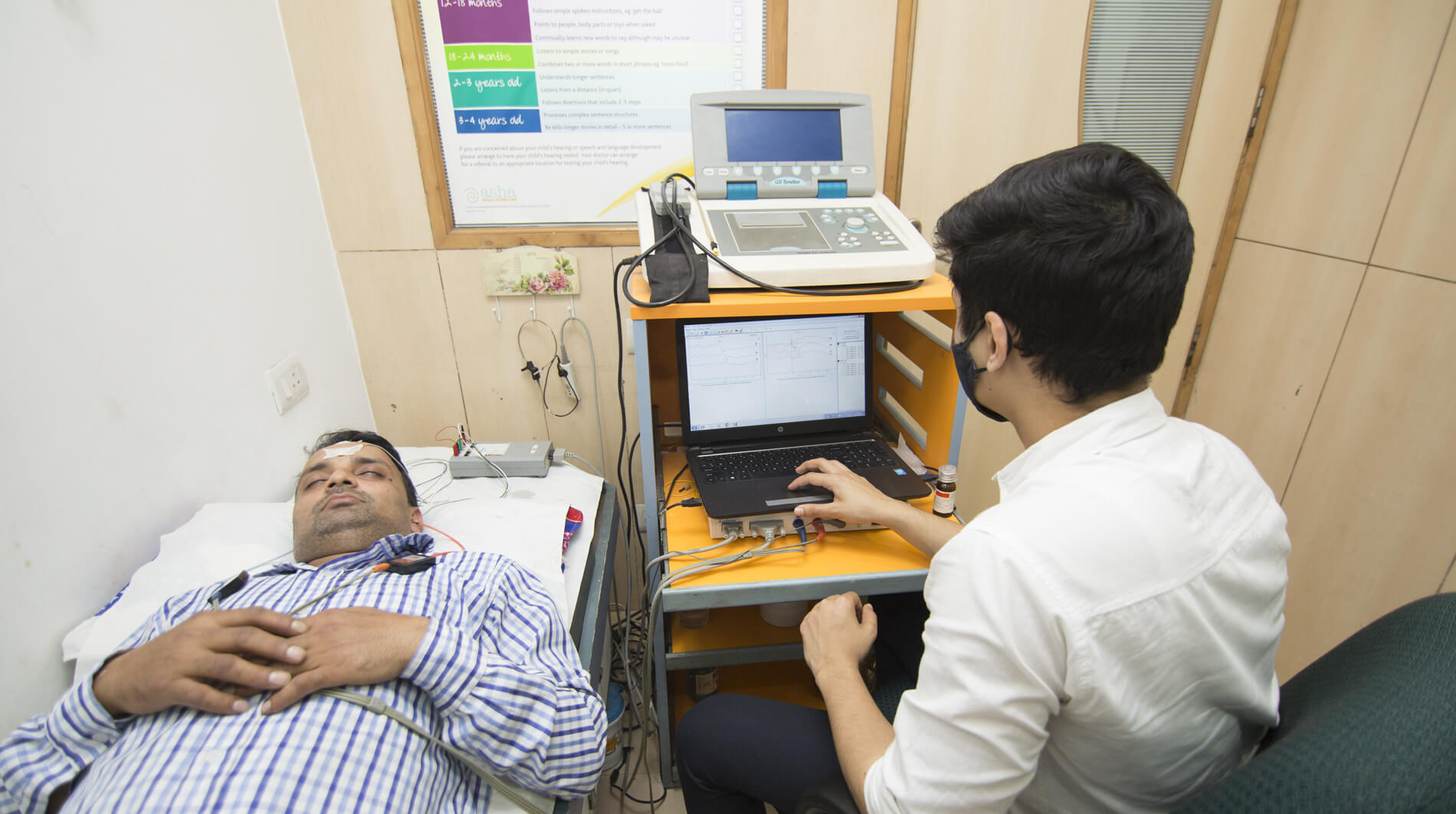Auditory Steady-State Response (ASSR) is an electrophysiological test that measures the brain's electrical activity in response to continuous or modulated auditory stimuli.

The primary goal of ASSR is to assess the hearing threshold and frequency-specific auditory responses.
During the test, the patient is exposed to continuous or modulated tones through earphones. Electrodes are placed on the scalp to record the brain's electrical responses to these stimuli.
The stimuli are typically modulated at specific frequencies, allowing for the evaluation of frequency-specific hearing thresholds.
Pediatric Audiology: ASSR is commonly used in pediatric audiology for objective hearing assessments, especially in infants and young children.
Severe to Profound Hearing Loss: It is particularly useful in cases of severe to profound hearing loss where traditional behavioral audiometry may be challenging.
Hearing Aid Fitting: ASSR can aid in the fitting and verification of hearing aids, providing frequency-specific information for programming.